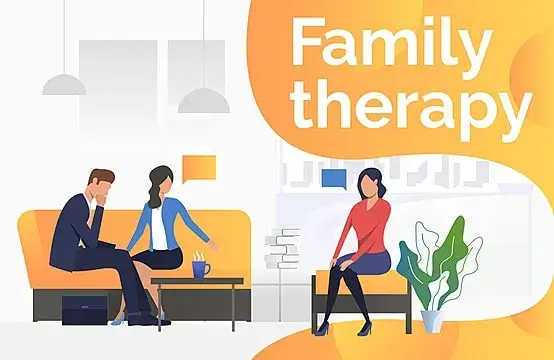What Is Included in Family Therapy and Why It Is Important
Family therapy, also known as family counselling, is a form of psychotherapy that focuses on improving communication and resolving conflicts within a family unit. Unlike individual therapy, which centers on a single person, family therapy involves multiple family members working together with a trained counsellor to address issues that affect the entire family.
It’s based on the understanding that a family is a system, and each person’s behavior affects the rest. By focusing on the relationships and dynamics within the group, family therapy aims to create a more supportive and functional home environment.
What Is Included in Family Therapy?
Family counselling can vary in structure and content based on the family’s unique needs, but it generally includes the following core components:
1. Initial Assessment and Goal Setting
In the early sessions, the therapist gathers information about the family’s structure, history, and the concerns that brought them to therapy. This phase helps identify patterns of behavior and communication that may be contributing to conflict or dysfunction.
The therapist works collaboratively with the family to establish goals for treatment, which may include improving communication, resolving conflicts, or supporting a specific family member in crisis.
2. Communication Skills Training
Poor communication is one of the most common issues families face. Family therapy helps members learn how to express themselves clearly and respectfully, listen actively, and avoid blaming or criticizing. These improved communication skills help reduce misunderstandings and foster healthier interactions.
3. Conflict Resolution Techniques
Conflicts are inevitable in any family, but unresolved disputes can create long-term tension. Therapists guide families through resolving disagreements in a constructive manner. This often involves helping each person understand the other’s perspective and working toward compromise or mutual understanding.
4. Identifying and Changing Negative Patterns
Many families fall into unhealthy cycles—such as blaming, scapegoating, or enabling—that perpetuate conflict or dysfunction. Therapists help families recognize these patterns and replace them with more supportive, effective behaviors.
5. Support for Life Transitions
Family therapy can help families navigate major life changes, such as divorce, remarriage, relocation, a new baby, or the loss of a loved one. These transitions often bring emotional strain and role changes that affect the entire household.
6. Focus on Individual and Family Needs
While the overall goal is to improve family dynamics, therapists also pay attention to individual concerns. If a child is dealing with anxiety, a teenager is struggling with substance use, or a parent is experiencing depression, these issues are addressed in a way that includes the family’s role in both the problem and the solution.
7. Crisis Intervention and Emotional Support
When families are dealing with serious issues such as abuse, addiction, or mental illness, therapy provides a safe space to confront the problem. The therapist can offer emotional support, safety planning, and referrals to additional services if needed.
Why Family Therapy Is Important
Family therapy plays a critical role in helping families function more harmoniously. Here’s why it matters:
1. Strengthens Relationships
At its core, family counselling helps family members better understand one another, which strengthens emotional bonds. It helps people feel heard, respected, and valued—fostering trust and empathy within the household.
2. Prevents Future Problems
Early intervention through therapy can prevent minor issues from becoming major sources of conflict. Learning how to communicate effectively and resolve disputes early can reduce long-term emotional and relational damage.
3. Supports Mental Health
Family dynamics can have a profound impact on individual mental health. Family therapy by a trained family therapist near me addresses the root causes of emotional struggles that stem from family interactions. For example, it can help parents learn how to support a child with anxiety, or help a family understand how to assist a member dealing with depression or trauma.
4. Helps Families Cope with External Stress
External stressors like financial hardship, illness, or job loss can strain even the strongest families. Therapy provides tools to manage these challenges together and avoid turning against each other during tough times.
5. Improves Parenting Skills
Parenting can be incredibly challenging, especially when children have behavioral or emotional issues. Family therapists often help parents build consistency, reinforce boundaries, and better understand their children’s needs and developmental stages.
Final Thoughts
Family therapy is not just for families in crisis—it’s a proactive and powerful tool for strengthening relationships, promoting emotional well-being, and improving daily functioning.
By fostering open communication, mutual respect, and problem-solving strategies, family counselling by a therapist in Vancouver can transform the way families interact and grow together. Whether you’re dealing with ongoing conflict, navigating a life transition, or simply seeking to build a healthier home environment, family therapy can be an invaluable resource.







